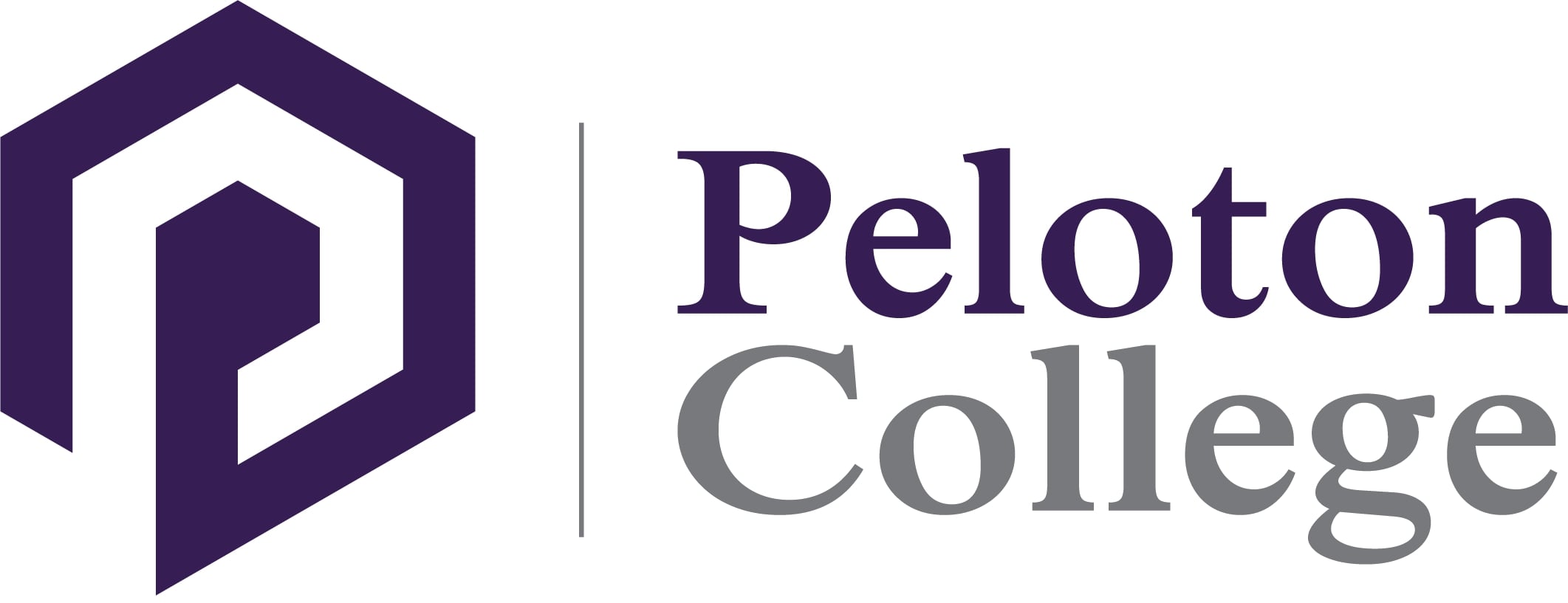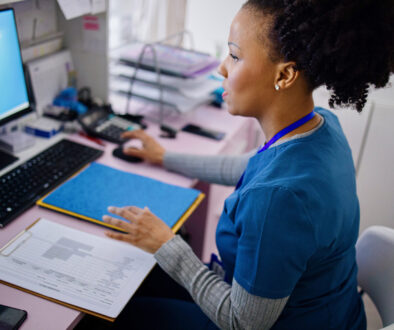Are Medical Billers Frontline Workers?

The healthcare industry can only function with high-level collaboration between physicians, nurses, medical assistants, and administrative support staff. Optimal treatment outcomes, patient safety, and effective use of resources are only possible when each facet of the system effectively fulfills its role.
While the professions have distinct responsibilities and varying levels of patient contact, their ultimate goal is to ensure the best care possible for each patient. Medical billers are vital frontline workers. Their role ensures proper documentation practices are followed. In addition, without medical billing, physicians and medical facilities would be unable to secure the reimbursement for their service that allows them to continue treating patients.
Medical billing is a rewarding and challenging career. This career allows you to help others by enabling practitioners to do their job. Medical billers provide invaluable compliance and accountability oversight. They also educate physicians and staff about the necessity for proper and timely documentation. So, what are frontline workers?
What are Frontline Workers?
One of the many things we learned through the recent pandemic was how many people are frontline workers and how critical their role is. Generally, anyone employed in an industry where their work must be done on-site or uninterrupted for the ongoing function of a necessary facility or industry is a frontline worker. Medical billers fit this definition because the continual generation of claims is essential to the continued operation of the healthcare system. By performing their core function, medical billers enable doctors and nurses to focus on patient care and deliver the best possible health outcomes.
Why Should I Join the Healthcare Industry?
While it’s impossible to predict the employment and economic landscape decades into the future, a career in the healthcare industry is growing, and the demand for medical billers is expected to grow 9 percent over the next decade, according to the U.S. Bureau of Labor Statistics. Supply and demand for goods and certain services shift, but people will always need preventative medical care and treatment.
Vital to Our Community
Healthcare professionals are highly regarded for the vital role they play in our communities. Employees of hospital systems, medical practices, and other medical facilities are often at the forefront of societal and cultural changes as they interact with people at their most vulnerable. Members of the industry are seen as leaders who offer invaluable insights for the needs of their community.
Help Others
Careers in healthcare are one of the few places where you can make direct and substantial impacts on others’ lives. A medical billing career will enable you to assist individuals through some of life’s greatest challenges.
Fast Paced
Working in healthcare is dynamic. While your role will have many core functions and a general routine, there’s no way to anticipate every possibility. The industry is excellent for those who dislike monotony because there is never a dull moment. You’ll need to work fast and efficiently without sacrificing accuracy and attention to detail.
Growth Potential
Healthcare careers offer excellent avenues for professional and personal growth. Individuals with experience are valuable to employers because they’ve proven they can thrive in a constantly evolving environment. A medical billing career allows you to develop leadership, collaboration, and communication skills that will enrich your personal life while positioning you for supervisory and management roles within a healthcare setting.
Why Should I Become a Medical Biller?
Individuals passionate about the healthcare industry, who don’t want a direct patient care role, should consider becoming a medical biller. The profession requires a thorough understanding of anatomy and physiology, medical care, documentation standards, high-level computer literacy, and comfort with medical coding language. Medical billers are an essential part of patient care teams that serve as the bridge between the clinical and business sides of the industry.
Medical billing professionals are indispensable because the federal government standardized the process of how medical claims are documented, communicated, and submitted to insurers for payment. This ensures consistency across the entire healthcare system to maximize patient outcomes, keep individuals safe, and minimize the risk of fraud and abuse.
What Skills Do Successful Medical Billers Have?
Medical billing is a structured process best suited for individuals with strong organizational, time management, and investigative skills. A medical biller’s primary duties are to interpret medical records to verify that the examinations, evaluations, treatments, and diagnoses were properly documented. They then translate the medical documentation, using the ICD-10 system, into an alphanumeric list that represents the patient’s case. Medical billers then generate invoices and submit them to insurers to obtain reimbursement for the services provided by doctors and other practitioners.
Attention to Detail
Medical billers need strong attention to detail because they are constantly reviewing medical records. The codes are highly specific and must be chosen based on what the medical record states. Subtle details or omissions drastically alter what codes you’ll use.
Research Skills
Success in medical billing also requires strong investigative and research skills. You’ll need to be inquisitive because medical coding requires the use of reference materials to verify a diagnosis and determine the necessary documentation to support its inclusion on an invoice. In addition, as new procedures and treatments evolve, you’ll need to learn about them and how they fit into the coding lexicon.
Communication Skills
You also need strong communication skills. Sometimes, medical records will be incomplete or unclear. You’ll need to follow up with nurses, doctors, and other administrative staff to obtain the necessary corrections and clarification so you can generate an accurate bill. You may need to partner with another medical biller or other department to determine the correct code, responding to a claim denial, or resolving a compliance concern.
What is an Easy Way to Become a Medical Biller?
If you’re interested in a career as a medical biller, the best path to success is completing a vocational training program. Beyond the necessary traits and soft skills you learn about in a medical billing program, you will also learn anatomy, physiology, clinical sciences, billing standards, the reimbursement cycle, and healthcare ethics. This knowledge is difficult to obtain through on-the-job training alone because medical billing is a detailed and rigid discipline.
What are the Benefits of a Formal Education in Medical Billing?
An effective vocational program will provide a strong knowledge base of medical billing practices, the clinical literacy to understand medical records, and the investigatory skills to use the professional resources that will be at your disposal.
Prepare for the Workforce
Vocational schools specialize in preparing students for their eventual role as a medical biller. The instructors are experienced professionals that teach you the theory behind medical billing while grounding your coursework in the day-to-day challenges you’ll face in the workplace. Preparing you for real-world scenarios and developing the research ability to solve medical billing problems will maximize your performance on the job.
Schools also use the current computer programs and latest coding manuals, so you’ll walk in the door of your new job with the practical experience needed to succeed. Your level of comfort can help lower stress and increase your chances to excel.
Graduates Are Confident
Medical billers will interact with every clinical department within their facility because every documented service must be coded and billed. Completing a vocational program provides you with the clinical knowledge and vocabulary to confidently speak with doctors, nurses, other billers, administrators, and insurance company representatives to clarify medical records, resolve billing errors, and obtain reimbursement.
Graduates Are in Demand
Hiring managers are drawn to graduates of vocational schools. Your education doesn’t just tell prospective employers that you possess the knowledge to work as a medical biller, but it shows them that you have the discipline to achieve a goal, the resilience to work through challenges, and the adaptability to grow in your position. Candidates with formal education are safer hires than their non-formally educated peers.
Greater Career Opportunities
Your desirability as a vocational school graduate will give you access to better employers and positions. As employers compete for graduates, you may work for higher quality medical facilities with better compensation packages than their rivals. Once you’re employed, your education will position you for advancement opportunities. Many employers require training and certification for supervisory and management roles. By starting with a formal education, you can advance your career without having to pause to complete your education.
Job Security and Portability
Employers want to retain medical billers with education and experience. Medical billing is a never-ending and time-sensitive role that is essential to a medical facility. Employers will hold onto medical billers with education because they can be confident in their ability and capacity to grow within the organization.
At the same time, your education will never leave you. The continued growth and necessity of the healthcare industry ensure medical billers with vocational training will have access to quality positions despite shifts in the economy and job market.
Placement and Development Services
Vocational programs are also excellent ways to network and obtain employment. Schools offer resources to help develop your resume, prepare for interviews, and identify quality positions.
Your instructors can offer advice on how to navigate office culture, work through challenges, and collaborate with your peers. Vocational schools also have a network of alumni who can provide insights into changes and developments in the field.
How Long is a Medical Billing and Coding Program?
Generally speaking, you will set the pace of your education. Motivated students who attend vocational training full-time can complete the coursework and enter the workforce in as little as nine months. The programs are structured to offer a comprehensive understanding of medical billing and reimbursement process, the necessary clinical knowledge, and the government and insurance provider regulations that dictate the field.
Final Thoughts
Want to join the frontlines as a medical biller? If you have a passion for medicine, not sure if you want to perform direct care with patients but still want to help people in your community, then becoming a medical biller may be the right career path for you. If you have 9 months to attend classes full-time, we will prepare you for a rewarding career as a medical biller.
Want to Learn More?
The Medical Billing and Coding training program at Peloton College provides students vital knowledge in Medical Terminology and Understanding Health Insurance Claims and prepares students to be able to work with and maintain electronic health record systems in the health care industry. Graduates of this Medical Billing and Coding training program will also be eligible to sit for the Certified Electronic Health Records Specialist (CEHRS) Certification or the Certified Billing and Coding Specialist (CBCS) Certification.
The mission of Peloton College is to be the premier provider of hands-on training and education by providing students and graduates with the necessary skills to secure occupational careers. Contact us today to learn more.



